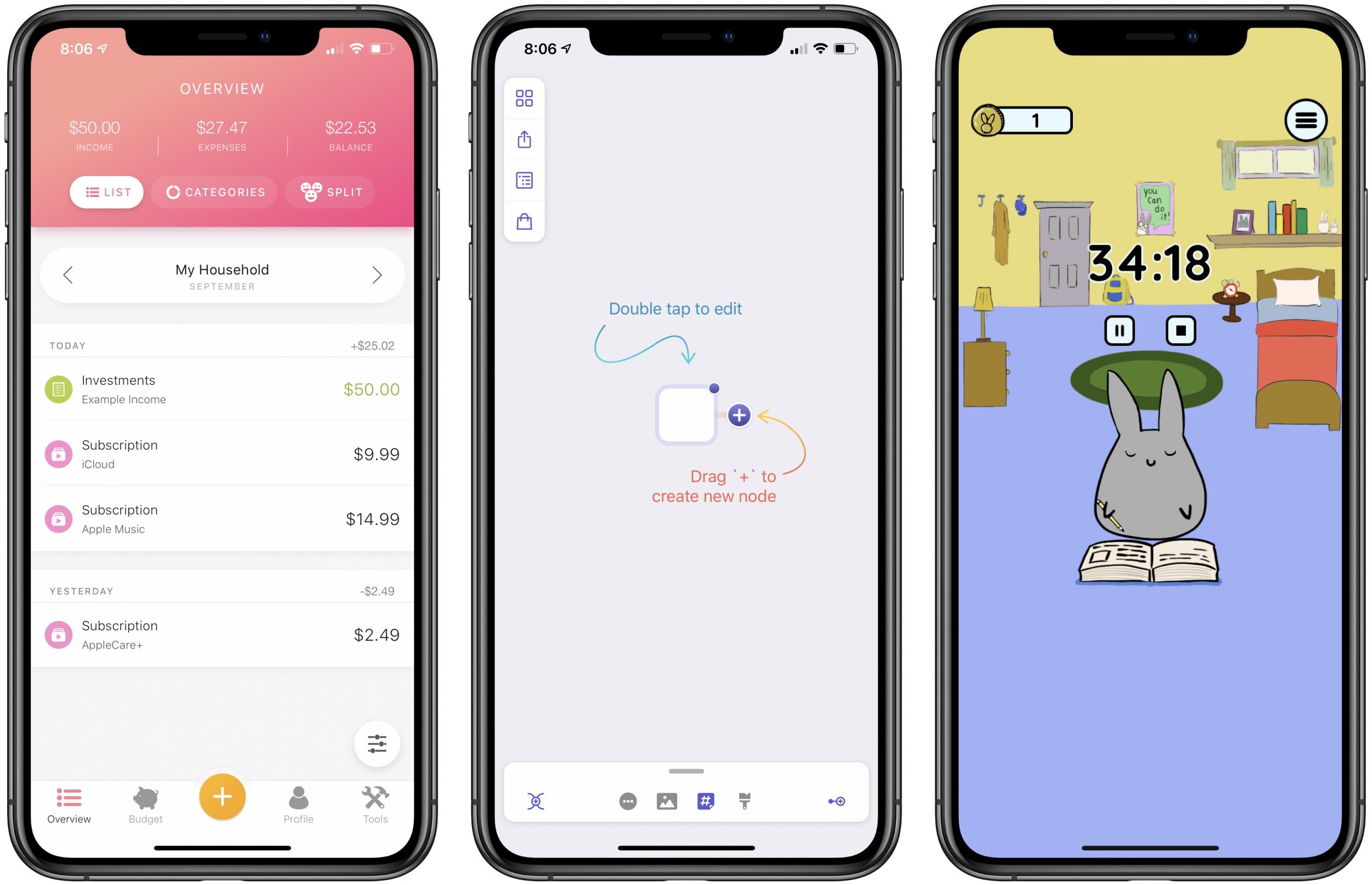
In this week's App Recap, we've highlighted finance app "Buddy," productivity app "MindNode," and productivity app "Study Bunny" as three apps that are worth checking out.

Apps to Check Out
- Buddy - Easy Budgeting (iOS, Subscription) - Buddy is an app that can help users set up a budget and keep track of expenses. The app's overview page provides a clear breakdown of all expenses over a month against an income value. Users can break up spending budgets into various categories to track how much spending occurs in each, and all transaction data can be conveniently exported in a CSV file. The app is free to download, and users can subscribe to the app's premium plan to create an unlimited number of budgets and categories, share transactions and budgeting data with others, export transactions, and more. Buddy's premium plan is available in monthly, quarterly, and yearly subscription options priced at $4.99, $11.99, and $34.99 respectively.
- MindNode - Mind Map (iOS & Mac, Subscription) - MindNode is an app that can be used to capture all aspects of an idea in a simple manner. The app allows several forms of content to be added on a branch of the map including text, drawings, links, and more. To help organize an idea, users can easily tag, detach, connect, reconnect, and move branches around the map. Maps can also be converted into an indented list in just a tap, which is a great way to see an outlined, high-level view of an idea. Although the app is free to download, certain features like Themes, Visual Tags, and Focus Mode are limited to subscribers of MindNode Plus, which is available in both monthly and yearly options priced at $2.49 and $19.99 respectively. There's also a two week trial available for new subscribers.
- Study Bunny: Focus Timer (iOS, Free) - Study Bunny can help users focus through a timer that tracks both work and break minutes. Upon completing a period of work, coins are obtained that can be used to purchase in-app content like sounds, custom backgrounds, and more. If the work timer is paused for more than seven minutes, however, coins will be lost, so users are incentivized to continue working. Additionally, the app tracks the length of study periods and displays daily work totals in weekly and monthly charts within the analytics menu. Study Bunny also lets users create flashcards and to-do lists to further help bolster productivity.
Are you using a great new app we've missed? Let us know in the comments and we'll check it out for next week's App Recap. Are you a developer of a unique app you'd like us to consider? Send us a message through our tip line at the top of the page and we'll check it out.
Article Link: App Recap: Buddy, MindNode, and Study Bunny
Last edited:

